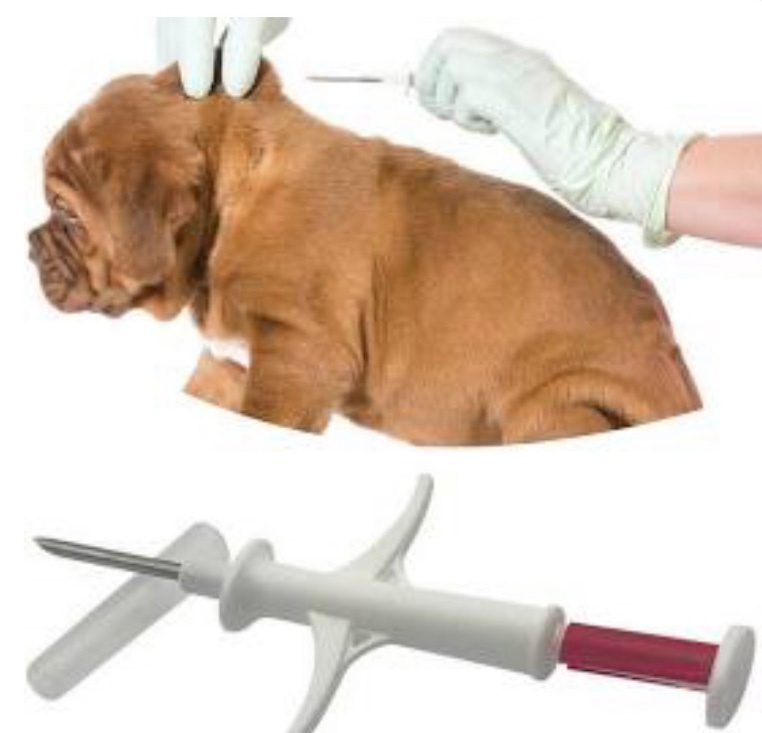
Our qualified Microchipping service gives YOU peace of mind
- Quick, permanent identification
- Easy, safe and pain – free
- Tiny insert chip – cannot be altered or lost
- Registered with PetLog, the National Database
- Required for travel abroad
Microchipping provides the security of knowing that should your dog stray, the chances of being reunited with him or her, will significantly increase.
Whilst every dog owner is legally obliged to ensure that their dog is wearing a collar and tag, these can easily get lost, or can be removed if a dog is stolen. A microchip is permanent. If you move to a new house, or change your telephone number, please call PetLog on 01296 336579 (24/7 lost and found line) as soon as possible to let them know.
It was a legal requirement in 2016 to have all dogs Microchipped for identity and reunification purposes.
Even newborn puppies should be microchipped by the breeder prior to them going to new homes which is a legal requirement.
At Clip’n’chip all dogs microchipped have their details put onto a website called ‘Chipworks’ and if done via the breeder owners are then given a code for them to amend new owner details currently free of charge.
To amend details or change of address please be advised there is a small charge to do this but highly recommended for reunification purposes should your dog get lost.
Contact Details
Email: info@chipworks.co.uk
Phone: 0330 107 0958
Your Questions Answered
A microchip is a small electronic device, the size of a grain of rice. The microchip is coded with a unique number that can be read by a scanner and then entered onto the national database alongside the owner’s details.
Using a specially designed implanting device, the microchip is injected through a sterile needle under the dog’s skin between the shoulder blades.
No, it does not hurt the dog. No anaesthetic is required and the procedure should cause no discomfort than a standard vaccination.
Just a few moments! In fact, by the time you complete the petlog registration form your pet will be protected by the latest I.D.
These can be found at most veterinary practices, local authorities, animal welfare groups and qualified microchipping institutions/groomers (certificate should be displayed).
If you plan to travel abroad your pet must have a microchip in order to comply with the regulations, for your pet passport.


